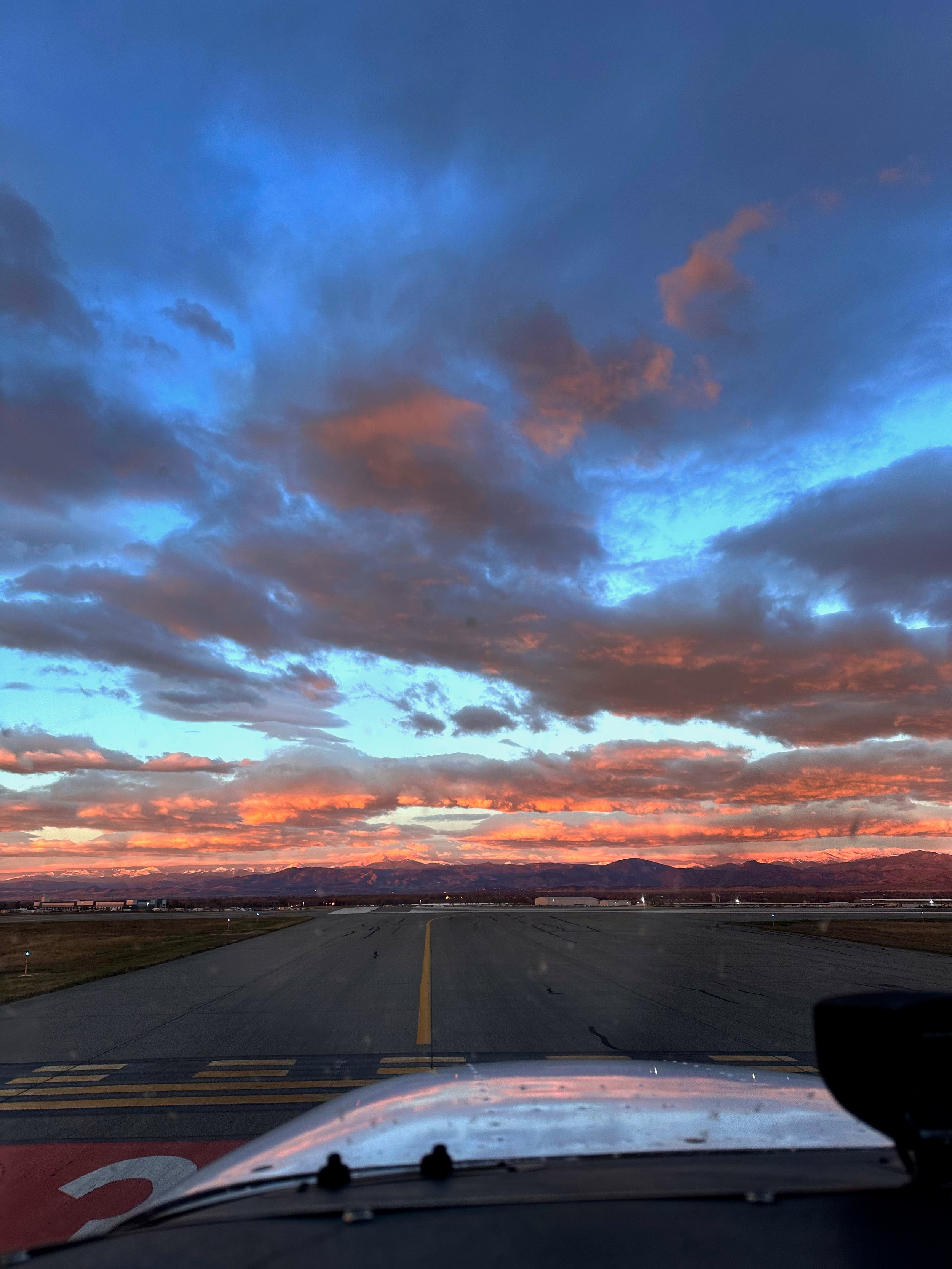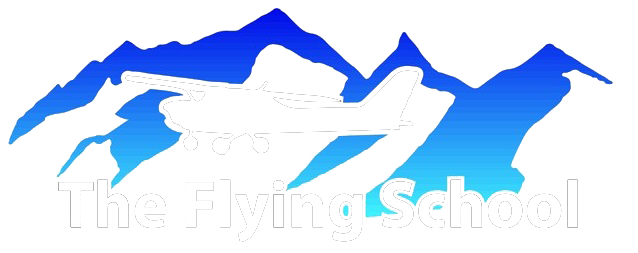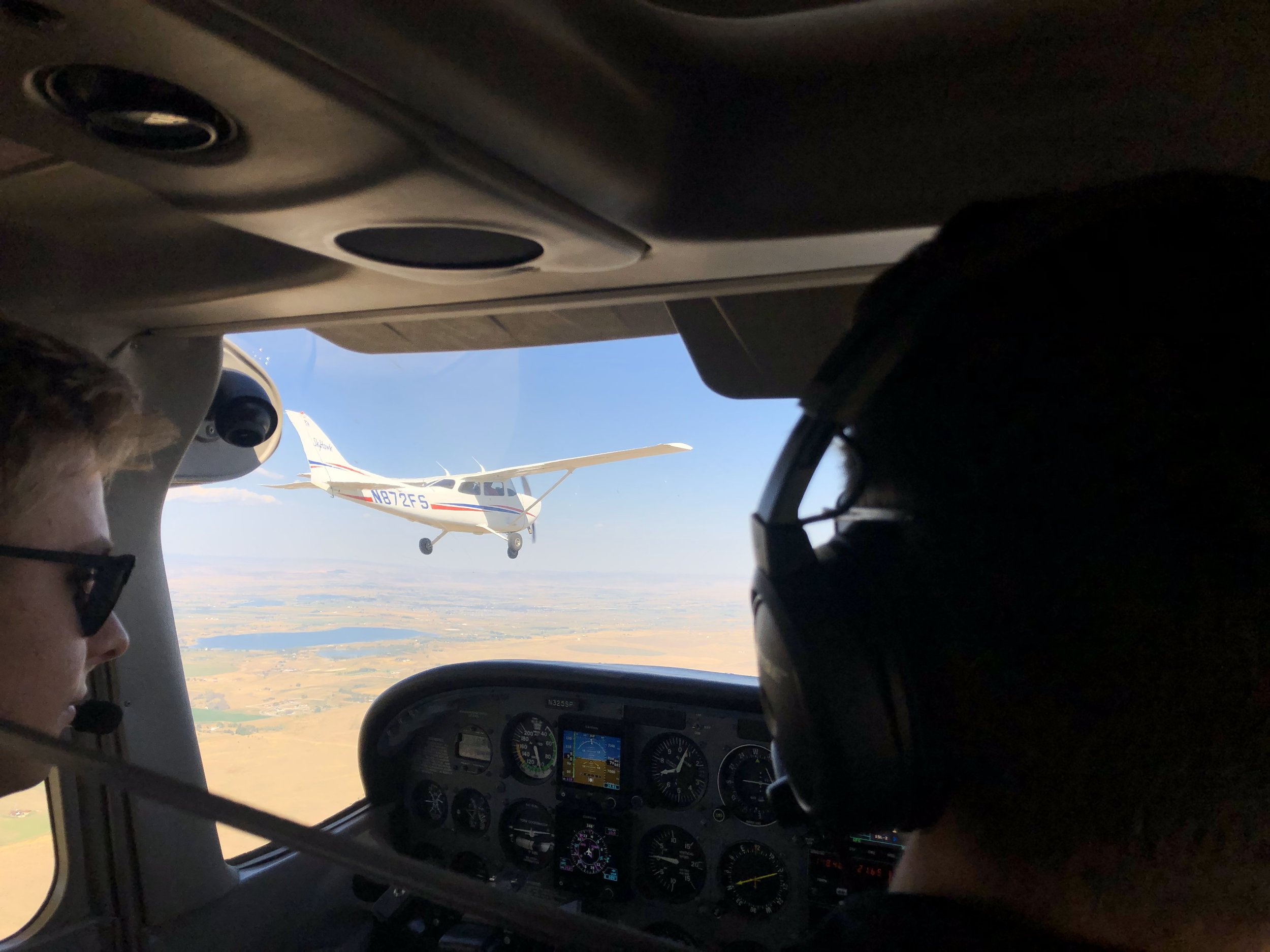
Take Your Career to New Heights
Visit The Flying School for commercial pilot training in Loveland, Colorado or Cheyenne, Wyoming
Then an career in aviation is perfect for you and you're ready for the commercial pilot training program at The Flying School. After we help you obtain your private and instrument ratings, our commercial pilot training focuses on fostering a better understanding of aircraft systems and a higher standard of airmanship.
The final step in your journey with The Flying School is to obtain your Certified Flight Instructor and Certified Flight Instrument Instructor ratings. We have one of the fastest and most successful programs in the country. Instructing up and coming pilots is the perfect way to build hours leading you to the opportunity waiting with the airlines.
The airline industry is booming and with a huge number of existing pilots being forced into retirement over the next ten years, the US is facing a huge pilot shortage. Most airline pilots make a starting salary of at least $120,000 (including bonuses) so the investment in your training is well worth the reward.
Our students have gone on to be hired with some of the most prestigious airlines in the nation including United, Frontier, Spirit, and Skywest as well as landing amazing careers with large corporations such as JBS and Blue Ocean Aviation.
Are you looking for a profession that is fun, flexible, and lucrative?
Obtaining a Private Pilot License (PPL) is an exciting journey that opens up the skies for aviation enthusiasts. To qualify for a PPL, aspiring pilots must meet certain requirements outlined by aviation authorities.
Typically, candidates must be at least 17 years old, hold at least a third-class medical certificate issued by an Aviation Medical Examiner, and demonstrate proficiency in English. The flight training component generally includes under part 61:
minimum of 40 flight hours.
at least 20 hours of flight training with an instructor.
10 hours of solo flight time.
Additionally, candidates must pass a written knowledge test and a practical flight test administered by a designated pilot examiner. Meeting these requirements ensures that private pilots are well-equipped with the skills, knowledge, and safety awareness needed to navigate the skies independently.
Private License
Attaining an Instrument Rating is a crucial step for pilots seeking advanced skills to navigate aircraft solely relying on instruments. To qualify for an Instrument Rating, individuals must already hold a Private Pilot License and be at least 17 years old. Furthermore, they need to accumulate under Part 61:
minimum of 50 hours of cross-country flight time as pilot-in-command.
10 hours of instrument training.
minimum of 40 hours of actual or simulated instrument time.
at least 15 hours of instrument flight training from an authorized instructor.
Pilots must also pass a written knowledge test and a practical test to demonstrate their proficiency in operating aircraft under instrument flight conditions. Acquiring an Instrument Rating enhances a pilot's capability to handle diverse weather conditions, ensuring a higher level of safety and precision in their flights.
Instrument Rating
Achieving a Commercial Pilot License (CPL) represents a significant milestone for those aspiring to turn their passion for aviation into a professional career. To qualify for a CPL, candidates must be at least 18 years old and hold a Private Pilot License. The training under Part 61 includes:
minimum of 250 total flight hours:
100 hours of pilot-in-command time,
50 hours of cross-country flight,
20 hours of training with an authorized instructor,
10 hours of instrument training ,
10 hours in complex or TAA.
A successful completion of written knowledge and practical flight tests, administered by a designated pilot examiner, is also required. Attaining a CPL equips pilots with the necessary skills and experience to pursue various commercial aviation opportunities, from flight instruction to charter services, marking a crucial step towards a dynamic career in the skies.
Commercial License
While holding a CPL, you'll need to accumulate additional flight hours to qualify for the Multiengine Rating:
Minimum of 250 Total Flight Hours: This includes the flight hours acquired during your CPL training.
Sufficient training with an Instructor: Benefit from focused instruction to master the intricacies of multiengine flight.
The journey to a Multiengine Rating includes successful completion of both oral and practical flight tests. Administered by a designated pilot examiner, these assessments ensure you possess the proficiency to safely operate multiengine aircraft.
Multi-Engine Add On Rating
Achieving a Certified Flight Instructor (CFI) certification at The Flying School marks a significant step in your aviation journey. In order to qualify to become an instructor, you must:
Hold a valid Commercial Pilot License (CPL).
Successfully complete the Fundamentals of Instruction (FOI) written exam.
Successfully complete the Flight instructor Airplane (FIA) written exam.
The Flying School offers an accelerated CFI program for commercial pilots to obtain their CFI certificate in 10 days. To learn more, please visit our CFI/CFII Program Page.
Certified Flight Instructor
Elevate your expertise with our Certified Flight Instructor Instrument (CFII) program in Northern Colorado. In order to obtain your CFII, you must:
Hold a valid CFI Certificate.
Hold an Instrument Rating.
To qualify for the CFII program, candidates must meet these prerequisites, and successful completion is typically assessed by an examiner. The Flying school offers an accelerated three day instrument instructor add on course once per month. To learn more, please visit our CFI/CFII Program Page.
Certified Flight Instructor - Instrument
Building on your Commercial Pilot License and Multiengine Rating, our Multiengine Instructor Certification at at The Flying School is the pinnacle of your journey to becoming an experienced aviation professional. This certification equips you with the skills to guide the next generation of pilots in the world of multiengine operations.
minimum of 250 total flight hours.
Sufficient training with an instructor.
The MEI concludes with successful completion of both written knowledge and practical flight tests. Administered by a designated pilot examiner, these assessments ensure you possess the expertise to instruct and mentor future multiengine pilots.










